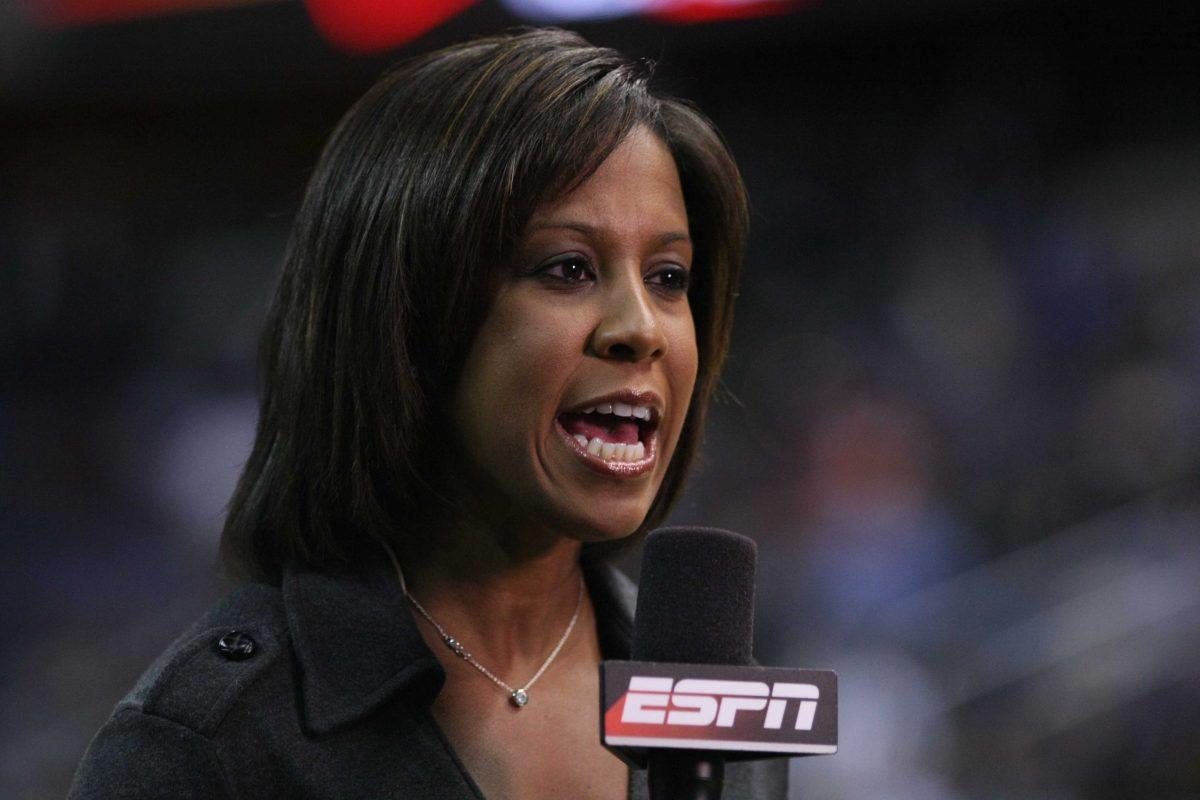Turn on a television sports channel. Watch for as long as possible as the channel goes through new shows, previewing any and every sport that may interest viewers.
Think about the people talking on television, the people analyzing each sport and influencing what a viewer thinks.
Now think about how many of them were women.
A lack of women talking about sports in the media or talking about sports in general has been the status quo for decades. The idea of sports being “for men” has been ingrained into people’s minds, creating a culture that shies away from the female voice.
“When you’re a kid, your parents told you that you can be whatever you want,” said Bria Turner, a sports writer for The Advocate. “But it was sort of hinted there were some things you couldn’t be.”
These subtle suggestions grow larger, and the taboo of women covering or even caring about sports is set. When it comes time for a woman to choose a career, many feel discouraged from covering something society considers foreign for them.
Local news channels feature female news anchors all the time. They feature female meteorologists and women covering entertainment. Female sports anchors are few in number at best, a product of our social norms.
If a woman does break through, the road only becomes tougher. It may be difficult for one to prove to herself that she can have a career in sports media, but proving that to the audience it centers around is a different story.
Katherine Terrell, who covers the New Orleans Saints for NOLA.com | The Times-Picayune, doesn’t let restrictions get to her but recognizes the dissidence people may have. When she first started covering the Saints, anonymous comments on her stories proved it.
“‘You don’t know what you are talking about, you’re a girl’ — comments like that came in,” Terrell said. “I hate to say that’s the natural thing, but sadly, it is. People see a girl talking sports, and women suddenly have to prove themselves in a way.”
Those anonymous comments come from a sad and disgusting section of sports fans, the people who think of sports as some sort of male sanctuary. Any woman who intrudes on the sanctuary is seen as a threat to something they’re so passionate about.
It’s because of these fans that when a woman covers a football game, she’s usually the sideline reporter asking coaches inane questions. It’s why a fantastic mind like Rachel Nichols had to leave ESPN for CNN so she could voice her opinion on topics she knew so well.
The lack of women becomes especially troubling when it comes to topics like domestic and sexual abuse committed by athletes. The end result is typically four to five men giving their opinions on a crime committed by a man with zero women in attendance.
I’m confident in my opinions, but I’m not stupid enough to think I know the entire scope of domestic abuse. More than that, I don’t know how I would feel if I had a passion for something so dominated by the opposite gender.
Almost everywhere they’ve worked, Turner and Terrell have been the only women on the sports staff or the beats they cover. Both have gotten used to the setting, with personalities like Nichols inspiring them with how far they can go.
The importance of the female voice should be taken delicately, but it cannot be forced, either. As Terrell pointed out, putting a woman on television to fulfill some kind of requirement is condescending toward women. A woman’s voice is important, but she should earn her way with the same chances as any male.
An even playing field for women is difficult to find for any job, so finding it in an area like sports media will take time. But with people who break through on the national level like Nichols, or even the regional level like Terrell and Turner, the acceptance and tolerance for women in sports media grows.
There is nothing inside a man making him care more deeply about sports than a woman. It’s about time society began realizing that.
Tommy Romanach is a 22-year old mass communication senior from Dallas, Texas. You can reach him on Twitter @troman_92.
Opinion: Lack of women in sports media needs to change
October 15, 2014
Washington Wizards v/s Cleveland Cavaliers November 18, 2009 at Verizon Center in Washington, D.C.








